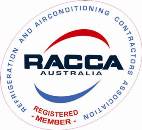Submissions to the Options Review Paper on the Review of the Ozone Protection and Synthetic Greenhouse Gas Management (OPSGGM) Programme have been made public.
The Options Review Paper is part of the Federal Government’s Review of the OPSGGM Programme and was open for consultation and submissions from early October until Mid-November 2015. The Options Review Paper also consisted of a technical analysis report, an environmental impact assessment, a cost benefit analysis, a summary of original public submissions and draft regulatory burden measurements.
The Department of the Environment’s website shows that 57 submissions were received in total with 38 of those submissions made public. The public submissions come from several industry groups, including submissions from: AIRAH, AMCA, ARC, AREMA, ARMA, VASA, Refrigerants Australia, ARA and of course, RACCA.
The Options Review Paper offered four preliminary packages ranging from minimum reform through to maximum reform. All 38 public submissions varied in their preference of options, however the majority of the submissions emphasised that: the Review was welcome, mandatory licensing should be enforced and that safety issues should have been addressed in the Options Review Paper.
AIRAH stated in their submission that they support Option 4 (maximum reform) and disagrees with the administration of the end-use licensing system on a voluntary basis. AIRAH also stated in their submission that they opposed to increasing end-use ARCTick Licence fees unless that value expands to include all refrigerants.
AMCA’s submission focused on the commercial refrigerated air conditioned industry and that their members “have expressed a preference for a single regulatory body with responsibility for refrigerants based activities” as it would result in “clearer lines of authority, produce administrative efficiencies and deliver better professional standards and health and safety outcomes.” AMCA also provided a detailed summary of their position on end-use licensing stating whether they supported, objected, supported in principle or strongly objected the measures outlined in the Options Review Paper.
ARC stated in their submission that they “lean towards” Option 3 (mid-to-high range reform) and like AMCA also provided a detailed summary of their position on end-use licensing. They also acknowledged the statements of other refrigeration and air conditioning groups calling for their licence scheme to expand.
AREMA stated in their submission that they are supportive of a HFC phasedown in line with international agreements, improved action to ensure compliance with the Act and improvement on end-use licensing.
ARMA stated their preference towards Option 4 in their submission and recommended “ceasing the provision of the Certificate II licence and restoring the requirement of having a Certificate III or higher to gain a licence, as well as a nationally recognised licensing and regulation system for refrigeration and air conditioning mechanics.”
VASA emphasised the importance of safety in their submission, stating that any alternative refrigerants for use in mobile air conditioning should only be endorsed after extensive risk assessment. VASA also stated that they support the current ARC licensing system but would prefer that it is strongly enforced.
Refrigerants Australia’s submission focused on issues around quota for bulk refrigerant, indirect emissions and end-use licensing. Refrigerants Australia stated that they supported an HFC phase down, that there is a need for new quota and new entrants on the market and that they support reforms to licensing regulations to ease administrative burdens.
The ARA stated in their submission that the Review is based on factual errors, analytic errors and false assertions and that the Review should be “rebased and started again”. They also made recommendations under two frameworks–a high level description of the regulatory structure & action required to achieve HFC phasedown and a framework of how the objective of the first framework could be achieved. ARA’s view on the Review has been questioned by Refrigerants Australia, AREMA, AMCA, VASA and Refrigerant Reclaim Australia.
Other (public) submissions have been received by AMROBA (The Aviation Maintenance Repair & Overhaul Business Association), Scantec, Arkema, Ausgrid, BOC, the Climate Institute, the Department of Agriculture, the Environmental Investigation Agency, E-Oz Energy Skills Australia, the Federal Chamber of Automotive Industries, Griffith Hack, Honeywell, Kidde Aerospace, LPG Fire Australia, Mr Tony Bittman, the National Fire Industry Association, the Fire Protection Association of Australia, Shecco, the Truck Industry Council, True Food International, TYCO Integrated Fire and Security, UTC Building & Industrial Systems, VACC (the Victorian Automotive Chamber of Commerce), Wilhelmsen Ships and Xatch International.
Representatives from AREMA, AIRAH, ARC, the Plastics and Chemicals Industries Association, the Fire Protection Association Australia and Refrigerants Australia also released a joint statement.
RACCA would like to see Option 4 of the Options Review Paper adopted, as we believe that the industry is up for the challenge of moving over to low GWP refrigerant in a controlled way. Our submission emphasises the importance of safety, the need for risk assessments, our support for mandatory equipment labelling and the expansion of the ARC licensing program. Our submission can be read in full here.
All of the public submissions, as well as the presentation from the October information sessions can be found and read in full here.



